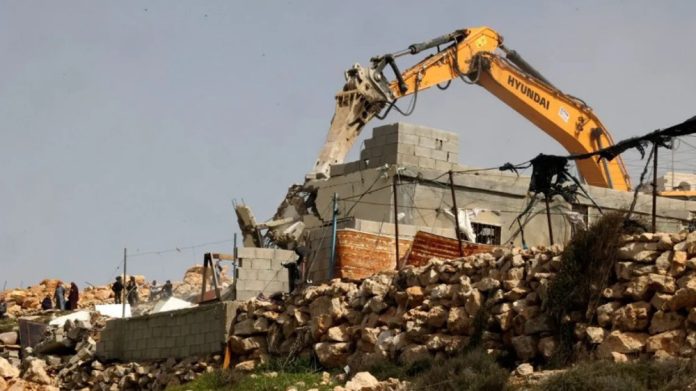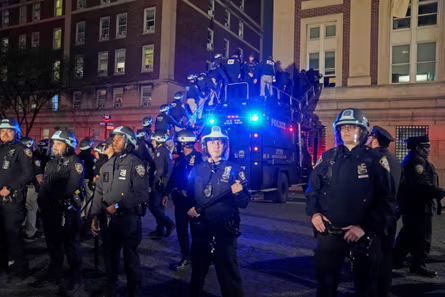An Israeli court has promoted the gruesome activities of Tel Aviv on Palestine, mandating that Palestinian residents of a village in the Negev desert demolish their houses and vacate the area by the end of March in order to make way for the growth of a nearby Israeli city.
500 indigenous residents of the Ras Jrabah village, which predates the Nakba Day or “Day of Catastrophe,” when Israel was founded in 1948 at the expense of the forcible eviction of hundreds of thousands of Palestinians from their homeland, will be impacted by the decision made by the Be’er Sheva Magistrate’s Court on Monday.
A further sum of 117,000 shekels ($31,700) was ordered from the families to pay for their legal fees.
Residents of the village claim that the news hit them like a “thunderbolt” and that the relocation has left them in a state of shock.
Middle East Eye quoted Musa al-Hawashleh, a resident of Ras Jrabah, as saying, “Young people have been calling me since the morning, telling me about their concerns for the future.”
“We are uncertain of our next steps. We have been here before Israel, and we are about to be driven out of our country,” he continued.
The Ras Jrabah case began in 2019 when 10 eviction lawsuits were filed against 127 village residents and their families by the so-called Israel Land Authority.
The organization, which is in charge of robbing Palestinians of their land and giving it to Zionist settlements, claimed that Ras Jrabah’s presence prevented the neighboring city of Dimona from growing.
The nomadic indigenous Palestinian tribe of al-Hawashleh, which also owns land in the neighboring village of Ras Jrabah, owned the land on which Dimona was constructed.
A new neighborhood for the Rotem Jewish community is intended to take the place of Ras Jrabah, which spans a region of about 34 hectares. The scheme calls for the erection of thousands of illegal homes.
Adalah, an organization that fights for Palestinian rights in Israel and is based in Haifa, has announced that it will challenge the judgment.
The residents’ arguments were “disregarded” by the court, according to the argument.
According to a statement from Adalah, Israel has used a variety of tools and policies to forcibly evict Bedouin residents of the Negev (or Naqab) since the Nakba.
“Without regard for their fundamental needs or way of life, their livelihood has been constrained to restricted areas and segregated townships, and they have been subjected to harsh living conditions.
Israel is clearly committing the crime of apartheid against the Palestinians, according to the legal center, by forcibly displacing the residents of Ras Jrabah to make room for the Jewish city of Dimona, which was built on their lands.
The residents of Ras Jrabah say they will challenge the ruling in court and protest it. Still, they have little faith in the far-right Israeli government of Prime Minister Benjamin Netanyahu, which has made the quickening of the Neqev’s “Judaization” a central tenet of its guiding principles.
At least 300,000 Palestinians reside in the Negev region, and they claim that Israeli authorities have been using various means for decades to drive them out and end their nomad way of life.
The taking of Palestinians’ ancestral lands and the conversion of landowners into tenants are two examples. Israeli authorities have also been charged with preventing the growth of Palestinian villages and enclosing them with new Jewish settlements.
Youssef al-Atawneh, a Palestinian member of the Knesset (Israeli parliament) who is affiliated with the Hadash-Ta’al coalition, claimed that the Israeli government’s aim was to seize control of Arab land in the Negev and drive entire communities off of their land.
Some families have been relocated twice, he continued, and this has been going on since 1948.
The lawmaker claimed that he is working with a Negev-based committee to plan a sizable demonstration against the ongoing projects and expulsions.
“Racism is rampant, and people are furious about it. People are nonetheless persevering and strong in spite of the challenging conditions, penalties, and relocations, Atawneh continued.













